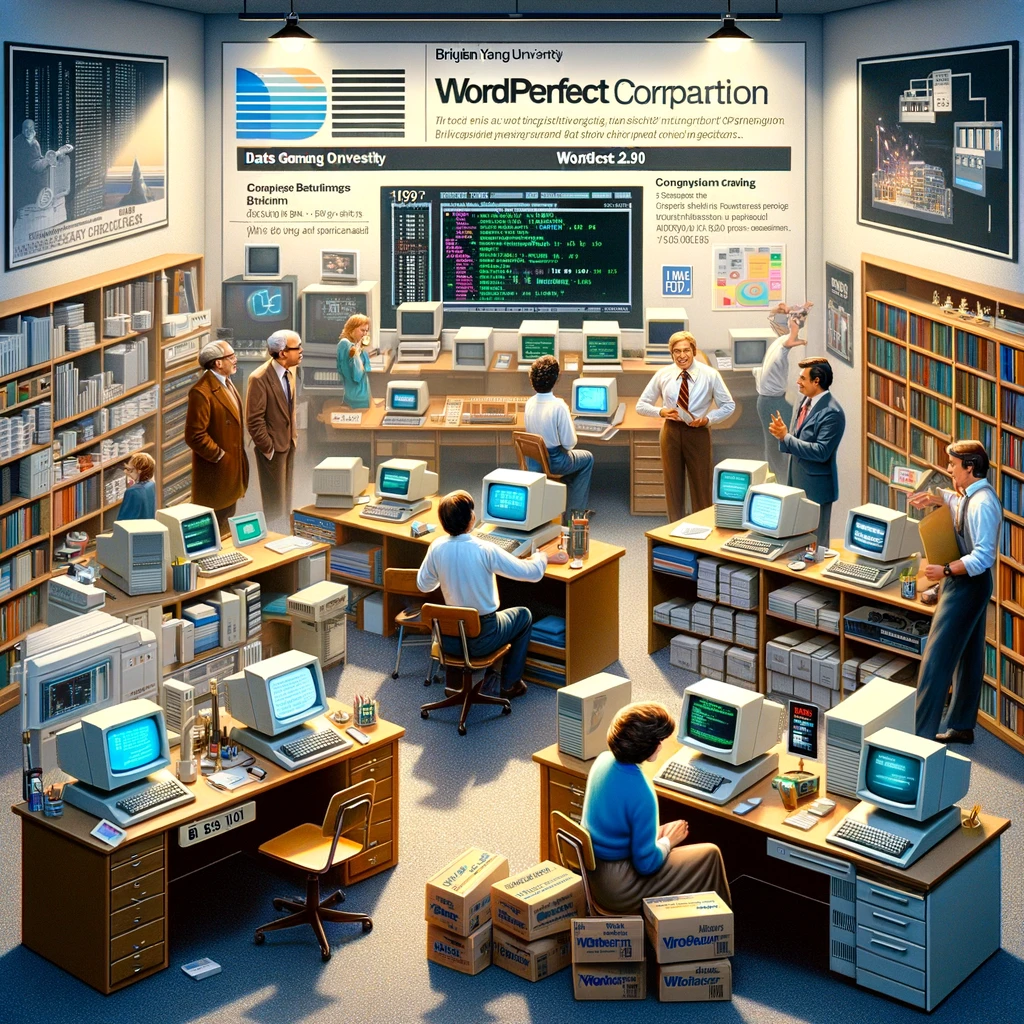Reading time: 11 minutes.

Why You Need a Project Manager
In the chaos of app development, a good project manager is like the captain of a ship, steering the team towards success. They keep everything running smoothly, making sure projects are delivered on time and meet the goals of the company and stakeholders (Atlassian).
What Does a Project Manager Do?
A project manager is the glue that holds the team together. They make sure everyone knows what they’re doing, keep an eye on progress, and are responsible for the project’s success or failure. They’re the go-between for the team, stakeholders, and higher-ups. By setting clear goals, allocating resources wisely, and keeping everyone on the same page, project managers ensure projects stay on track (ActiveCollab).
Here’s what a project manager typically handles:
- Planning and Resources: They figure out what needs to be done, who’s going to do it, and when it needs to be finished.
- Team Organization: They build and lead the team, making sure everyone works well together and knows the project goals.
- Time and Money Management: They keep an eye on deadlines and budgets, making adjustments as needed to stay on track.
- Customer Satisfaction: They understand what the client wants and make sure the final product meets those expectations.
- Risk Management: They spot potential problems early and come up with backup plans to keep things running smoothly.
- Progress Tracking: They monitor milestones, gather data, and keep everyone updated on how things are going.
- Documentation: They keep all project documents organized and accessible for future reference.
Skills of a Great Project Manager
A great project manager needs a mix of people skills and technical know-how. They need to communicate clearly, lead effectively, solve problems, and adapt to changes. These soft skills help them work well with the team, resolve conflicts, and handle any issues that pop up during the project.
On the technical side, they need to be good at planning and scheduling, managing budgets, assessing risks, and using project management software. By blending these skills, project managers can guide their teams to success.
Having a skilled project manager on your team means better planning, smarter resource use, and fewer risks. They keep everything organized and on track, boosting team productivity and ensuring successful project outcomes. Want to dive deeper into project management for developer teams? Check out our article on project management best practices for developer teams.
Nailing Communication in Project Management
Good talk is the backbone of any successful project. As a project manager, you’re the glue that keeps your developer team on the same page. How you communicate can make or break your project’s success.
Communication Tips That Work
To keep your team in sync, try these tips:
Open Chats: Make it easy for everyone to share ideas, updates, and worries. Create a space where folks feel safe to speak up. Regular team meetings or quick stand-ups can help keep everyone in the loop.
Listen Up: Pay attention when your team talks. Show them you value their input. This can help you catch potential problems early and come up with better solutions.
Keep It Simple: Use plain language. Skip the tech jargon that might confuse people. Clear and direct talk helps everyone know what they need to do.
Frequent Updates: Keep the team posted on how things are going. Share progress, hit milestones, and flag any changes. Use project management tools to keep everyone updated.
Write It Down: Document important chats, decisions, and agreements. This helps avoid mix-ups and gives you a record of how the project is moving along.
For more tips on managing projects, check out our article on project management best practices for developer teams.
Crafting a Solid Communication Plan
To keep communication smooth throughout the project, you need a plan. This plan should cover how and when you’ll communicate, and what to expect from each type of communication.
Here’s what to include:
Stakeholder Talk: Identify who needs to know what and how often. Tailor your communication to fit their needs.
Team Huddles: Set up regular meetings to discuss progress and tackle any issues. Decide how often to meet based on your project’s needs.
Tools and Tech: Pick the right tools to help your team communicate. Project management software, chat apps, and video calls can keep everyone connected.
Set Expectations: Make sure everyone knows the rules for communication. This includes how quickly to respond, attending meetings, and using the right tone.
Feedback and Fixes: Create ways for the team to give feedback and resolve conflicts. Open and honest feedback can improve teamwork and fix problems fast.
By having a solid communication plan, you make sure everyone knows what’s going on and can work together smoothly.
Good communication in project management boosts team productivity and helps you hit your goals. By using clear communication tips and having a strong plan, you create a team environment that works well together, avoids misunderstandings, and stays focused on success.
Project Planning and Management
Nailing project planning and management is like having a secret weapon for any development project. A solid plan and the right tools can make your developer team unstoppable.
Why a Good Project Plan Matters
A good project plan is like a map for project managers. It lays out goals, timelines, resources, and milestones. This map keeps everyone on track and working towards the same goal.
Here’s how a good plan helps:
- Setting Goals: Clear goals help your team know what they’re aiming for.
- Managing Time: Breaking the project into tasks with deadlines helps keep things moving.
- Allocating Resources: Making sure your team has the right people, tools, and equipment.
- Tracking Milestones: Milestones let you see progress and celebrate wins, keeping everyone motivated.
With a solid plan, you can avoid confusion, keep the project on track, and boost productivity.
Using Project Management Software
Project management software like Confluence is a game-changer. It acts as a central hub for all project tasks, plans, and resources, making communication and collaboration a breeze (Atlassian).
Here’s why it’s awesome:
- Centralized Info: Store all project info in one place so everyone has the latest updates.
- Team Collaboration: Work together on tasks, share files, and give real-time updates.
- Task Management: Assign tasks, set deadlines, and track progress easily.
- Document Management: Store and manage all project documents in one place.
- Reporting and Analytics: Generate reports on progress, resource use, and more to make informed decisions.
Using project management software streamlines workflows, boosts teamwork, and improves productivity.
Incorporating a solid project plan and using project management software are key to effective planning and management. These practices help organize tasks, allocate resources, and foster collaboration, ultimately boosting team productivity and project success. Want to dive deeper into what a project manager does in a developer team? Check out our article on project manager responsibilities in a developer team.
Keeping Your Developer Team Fired Up
Keeping your developer team motivated is a big deal in project management. Team morale is like the secret sauce that keeps everyone happy, productive, and ready to tackle challenges. As a project manager, you can make or break this vibe, and that directly affects how well your projects turn out.
Why Team Morale Matters
Team morale is basically how your team feels about their work environment. Think of it as the team’s mood ring. When morale is high, folks are pumped, engaged, and loving their work. But when it’s low, you get grumpy faces, low productivity, and projects that drag on forever.
Low morale can come from all sorts of places: lack of accountability, poor communication, unclear goals, or just a few bad apples in the bunch. Spotting and fixing these issues is key to keeping your team in high spirits.
How to Boost Team Morale
Getting your team excited about their work isn’t rocket science, but it does take some effort. Here are some tried-and-true methods to keep your developers happy and humming along:
Hire the Right Folks: Start by bringing in people who fit your team’s vibe and goals. Look for candidates with the right skills, a positive attitude, and a solid work ethic. A good fit from the get-go makes everything easier.
Get Them Involved: Let your team have a say in decisions. When people feel like their opinions matter, they’re more invested in the project’s success. Ask for their input and feedback on important choices.
Set Clear Goals: Make sure everyone knows what they’re supposed to be doing and why it matters. Clear goals and roles give your team a sense of purpose and direction, which boosts morale.
Celebrate Wins: Recognize and reward your team’s hard work. Whether it’s hitting a milestone or just doing a great job, a little acknowledgment goes a long way. Celebrate successes and give shout-outs for individual and team achievements.
Tailor Your Approach: Every team is different. Take the time to understand what makes your team tick. Customize your management style, communication methods, and team-building activities to fit their needs.
By using these strategies, you can create a positive and motivating environment for your developer team. Remember, keeping morale high is an ongoing effort. As a project manager, your role in fostering a happy and motivated team is crucial for hitting those project goals and keeping everyone on track.
Conflict Resolution in Project Teams
Conflict in project teams is bound to happen. With everyone coming from different backgrounds, expectations, and goals, clashes are almost a given. Sometimes it’s personal differences, other times it’s conflicting demands from outside groups. Either way, it can mess with team performance and project success. But, if you handle it right, conflict can actually spark creativity, boost productivity, and improve communication (PMI).
Understanding Team Conflict
In project teams, conflict usually falls into two buckets: people-focused and task-focused. People-focused conflict is all about personal differences. It’s emotional, intense, and can really hurt team performance. Task conflict, though, can be a good thing if kept in check. It pushes people to think critically and make better decisions, especially when the task is complicated (PMI).
Project managers need to get a handle on these types of conflict and their impact. Spotting and dealing with conflict early can stop it from blowing up and wrecking team dynamics and productivity.
Conflict Resolution Strategies
Handling conflict well is key to turning it from a problem into a plus. Here are some strategies project managers can use:
Spot Conflict Early: Keep an eye out for signs of conflict within the team or with external groups. Catching it early means you can nip it in the bud before it gets out of hand.
Build Trust and Understanding: Trust is the glue that holds a team together. Create an environment where open communication, collaboration, and respect are the norms. Team-building activities can help build trust and understanding.
Listen Actively: Active listening is a must. Encourage team members to really listen to each other, understand different viewpoints, and empathize. This can improve communication and help resolve conflicts.
Promote Team Building: Activities that bring the team together can improve relationships and create a positive environment. Organize exercises, workshops, or retreats to help team members bond.
Create a Safe Space for Communication: Make sure team members feel safe to share their opinions, concerns, and ideas. Open communication and collaboration can lead to constructive discussions and innovative solutions.
By using these strategies, project managers can turn conflicts into opportunities for growth and creativity, improving team dynamics and boosting productivity.
Want to know more about how project managers can boost team productivity? Check out our article on project manager responsibilities in a developer team.
Boosting Team Productivity
Want your developer team to hit those high notes? Give them the right tools and celebrate their wins. These two simple steps can turn a good team into a great one.
Give Them What They Need
Imagine trying to build a house without a hammer. Frustrating, right? The same goes for your developer team. If they don’t have the right tools, they’re going to struggle. No pep talk can replace a missing piece of software or outdated hardware (ProjectManager).
As the project manager, it’s your job to make sure your team has everything they need. This means up-to-date hardware, the latest software, and any other tools that make their job easier. When you provide these resources, you’re setting your team up for success.
Don’t just stop there. Keep an eye on what your team needs. Maybe it’s time for a hardware upgrade or some new training sessions. Staying current with industry standards and technologies can make a world of difference. By investing in the right resources, you’re helping your team deliver top-notch work.
Celebrate the Wins
Everyone loves a pat on the back. Celebrating both small and big wins can do wonders for your team’s morale. When you acknowledge their hard work, you’re not just giving them a thumbs-up; you’re creating a positive work environment.
Recognition can come in many forms. A shout-out during a team meeting, a message in the group chat, or even a small reward can go a long way. Meeting milestones or delivering great results deserves some celebration.
It’s also important to be fair. Make sure everyone gets their moment in the spotlight. Recognize the diverse strengths and contributions of each team member. This fosters a sense of unity and collaboration.
Celebrating wins creates a positive feedback loop. It boosts morale and motivation, leading to higher job satisfaction and productivity. Your team will be more inclined to keep up the good work (PMI).
By giving your team the tools they need and celebrating their successes, you’re creating an environment where productivity thrives. These practices build a positive team culture and can significantly impact the success of your projects.





